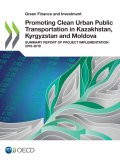
This report presents the objectives, methodology, procedures and main findings of the OECD project "Strengthening public finance capacity for green investments in the EECCA countries". Between 2016-19, the project aimed to help set the partner countries (Kazakhstan, Kyrgyzstan and Moldova) on a sustainable path of development by reducing the energy and carbon intensity of their economies.
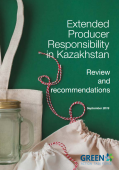
This report analyses the current legal framework and operational set-up for Extended Producer Responsibility (EPR) in Kazakhstan and makes recommendations for strengthening and improving the current system further.
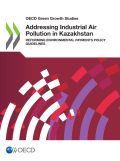
This publication shows that Kazakhstan’s environmental payments for industrial air pollutants, as currently applied, impede energy efficiency and pollution abatement with heavy-handed non-compliance responses and focus on rising revenues. They also add to the cost of doing businesses in the country, with limited environmental benefit. In the spirit of the Polluter-Pays Principle, much more regulatory reform on environmental payments are needed. This report provides guidelines for reform.
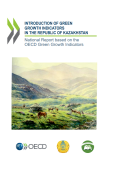
This report presents the results and conclusions of the project “Introduction of Green Growth Indicators and Preparation of the Report on Green Growth in Kazakhstan”, carried out within the framework of the OECD Kazakhstan Cooperation Program. The main goal of the project is to assist Kazakhstan in integrating the measurement of green growth into the regular reporting and planning system, in implementing the concept for the transition to a green economy, and in assessing progress and achieving green growth at the macro level.
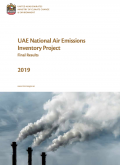
This report presents the results from Phase II of the Air Emissions Inventory Project. It is the first national air pollutant emission inventory carried out for the whole country. The emissions inventory shows that emissions from the stationary energy and transport sectors dominate the emission sources. For particulate matter, the dominant source is industrial processes and product use (IPPU). Although the agriculture and waste sectors have a minor contribution to the country’s overall emissions, their role is more significant in terms of greenhouse gas emissions. However, of particular note are the estimated high non-methane volatile organic compounds (NMVOCs) emissions from municipal solid waste disposal on land.
